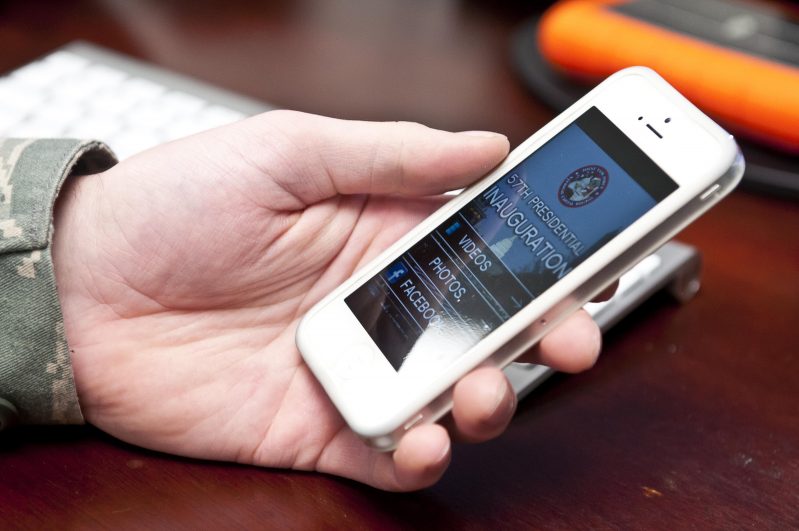
The new year is an ideal time to make positive changes in your life. Remember to protect your identity and digital privacy. Identity fraud is on the rise, so it’s important to take better care with your online practices. Here are a few simple measures you can implement right now.
IDX has published this great article about protecting your privacy and identity in 2024:
From email links to account log-ins, here’s how to stay safe online in the new year.
Your resolutions for 2024 might involve some type of self-improvement, from your health, to your personal relationships, to your career. If so, you’re likely going to spend a fair amount of time online—using apps, making purchases, doing research—as you work toward these goals.
Don’t let lax online practices derail your bigger plans: Resolve to protect yourself against identity fraud and other cybercrimes. It’s a smart idea, because hackers and scammers caused $10.3 billion in financial losses last year, according to the FBI’s Internet Crime Complaint Center. The threat isn’t going away any time soon.
Here are six simple resolutions to add to your new year’s list, all designed to help safeguard your privacy and identity. Follow these practices and you’ll enjoy greater peace of mind while pursuing a better you.
Resolution 1: No more clicking unknown links without confirming them.
One of the most common online threats is phishing, where scammers impersonate legitimate businesses and send messages containing fraudulent links. AI tools like ChatGPT are making it even easier for bad actors to produce convincing fakes. If you click a suspicious link, you could be allowing spyware or malware onto your device; if you enter your personal information on a scam website, you could be risking financial loss or identity theft. Before you click, hover your cursor over the link to see the URL, which will appear either in a pop-up or at the bottom of your browser window. Check to see if the URL matches that of a legitimate entity by doing a quick search for the real company. Also, if the URL begins with “http” and not “https,” it’s not a secure site.
Resolution 2: Act quickly if your personal data is stolen.
Data breaches of entities like banks, retailers, healthcare providers, and government agencies are becoming more and more common. If you’ve got personal information or passwords stored in an account with a breached organization, your data could wind up for sale on the dark web—an anonymous, hard-to-access layer of the web where cybercriminals ply their trade. If your information is sold, it could lead to identity fraud. The best way to mitigate the risk is to act quickly, and one way to do it is by using a service like IDX CyberScan. This surveillance engine proactively searches all layers of the web, including the dark web, and alerts you immediately if your personal data has been placed on the black market. You’ll gain valuable time to do things like changing your passwords and monitoring your credit, in order to avoid the worst outcomes.
Resolution 3: Strengthen your privacy when using social media.
Let’s say you’re making progress on a goal to get in better shape, and you want to share the news with friends and family on social media. Maybe you’re sharing fitness-tracker info about your morning running route, or you’re posting gym photos that include a geolocation tag. Just know that creepy people outside of your trusted circle might be able to use that information to track, stalk, or harass you. When on social media, choose strict privacy settings to help ensure that outsiders can’t view your activity. Before you take pictures or videos that you plan to post, turn off any geo-tag settings on your phone. For added security, consider a service like IDX’s SocialSentry, which sends alerts about social media account takeovers, suspicious activity, inappropriate content, and more.
Resolution 4: Be more careful about using public Wi-Fi.
You’ve resolved to travel more, and now you’re at the airport using free public Wi-Fi. But that open network could potentially be used by others to spy on your location or online activities. The network might even be fake, created by scammers to infect your computer with malware or steal your personal data. If you want to use free Wi-Fi in public places, install a Virtual Private Network (VPN) like IDX’s SafeWiFi, which moves your data through encrypted connections to better protect your privacy.
Resolution 5: Improve your password hygiene and log-in security.
Hacked passwords remain one of the leading causes of data breaches. Resolve to create different, hard-to-guess passwords for each of your online accounts. (A service like IDX Password Manager can do this for you. It automatically creates and stores encrypted, hard-to-hack passwords for all your accounts. You use just one strong password to open Password Manager; from there you can easily access your accounts.) Also, add multi-factor authentication as an extra layer of security for your log-ins. Download an authenticator app like Google Authenticator, Microsoft Authenticator, Authy, or 2FA Authenticator.
Resolution 6: Use the protective tools available to you.
That notification you keep seeing on your phone or laptop about a software update? Don’t ignore it. These updates to your device’s operating system often include important security upgrades, so you should always download them as soon as possible. Similarly, be sure to install the latest antivirus software and turn on automatic updates. Finally, if you want to go the extra mile for online protection in 2024, consider comprehensive privacy and identity coverage like IDX’s Complete Plan, which offers advanced tools and services to guard against a wide array of cyberthreats.



